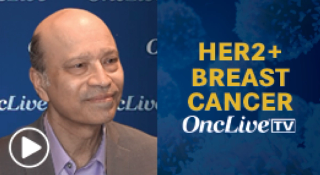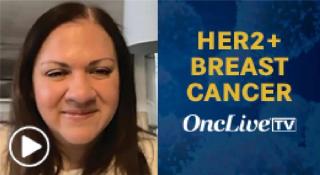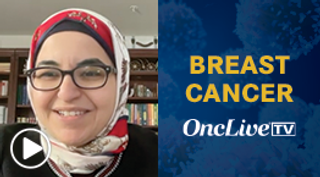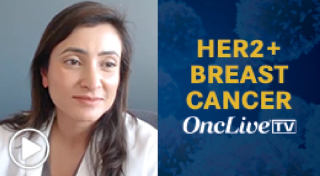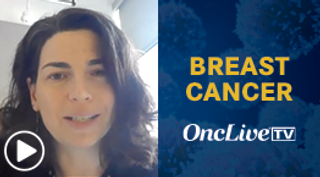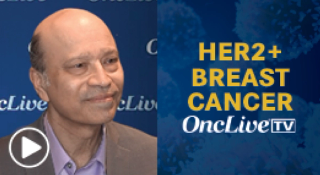
HER2+ Breast Cancer
Latest News

Latest Videos

CME Content
More News

Neoadjuvant zanidatamab monotherapy successfully reduced the incidence of residual disease and was well tolerated in treatment-naïve women with node negative, stage I HER2-positive breast cancer, potentially allowing patients to achieve pathologic complete responses in the absence of chemotherapy.
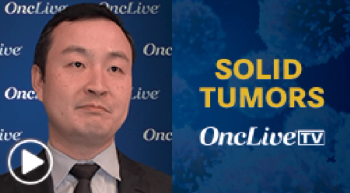
Bob T. Li, MD, PhD, MPH, discusses the results of a phase 1/2 study of the first-in-class immune-stimulating antibody conjugate BDC-1001 in patients with advanced HER2-expressing solid tumors.
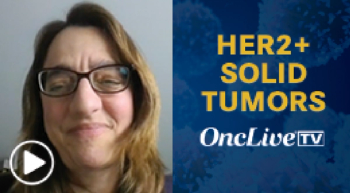
Funda Meric-Bernstam, MD, discusses the phase 2 DESTINY-PanTumor02 trial of trastuzumab deruxtecan in difficult-to-treat HER2-positive solid tumors.

Subcutaneous delivery of fixed-dose adjuvant pertuzumab plus trastuzumab proved to have favorable tolerability, with a safety profile consistent with that seen with intravenous delivery of the regimen in patients with HER2-positive breast cancer.

Experts in the field share the abstracts they found to be the most practice changing at this year’s ASCO Annual meeting.

Atezolizumab in combination with trastuzumab and vinorelbine generated responses and a tolerable safety profile in patients with HER2-positive, estrogen receptor–negative or ER-positive/PAM50 non-luminal advanced breast cancer, according to data from a prespecified interim analysis of the phase 2 ATREZZO trial.
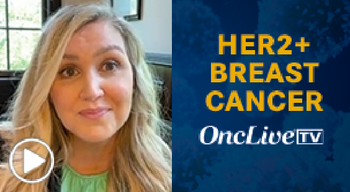
Christie J. Hilton, DO, discusses the potential impact of the ongoing phase 2 CompassHER2-pCR trial for patients with HER2-positive breast cancer.
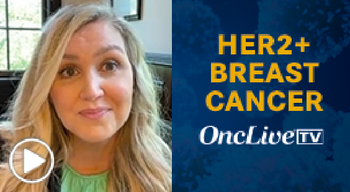
Christie J. Hilton, DO, discusses the impact of trastuzumab deruxtecan on the treatment of patients with HER2-positive metastatic breast cancer and ongoing research with the agent in this patient population.

Lida A. Mina, MD, discusses the evolution of the antibody-drug conjugates fam-trastuzumab deruxtecan-nxki and ado-trastuzumab emtansine in HER2-positive breast cancer.

Lida A. Mina, MD, discusses the evolving role of ADCs across breast cancer subtypes, current data on the use of CDK4/6 inhibitors in HR-positive, HER2-negative breast cancer, and the increased use of genomic testing and NGS to improve the sequencing of agents in triple-negative breast cancer.
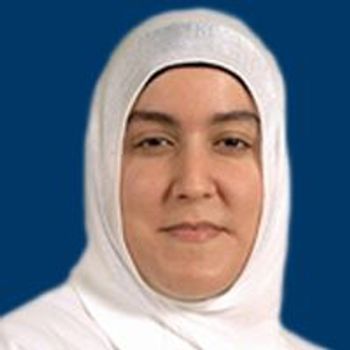
Nusayba Bagegni, MD, details ongoing research and possibilities for the treatment landscape in the future, which includes investigating escalating approaches through more research in clinical trials.
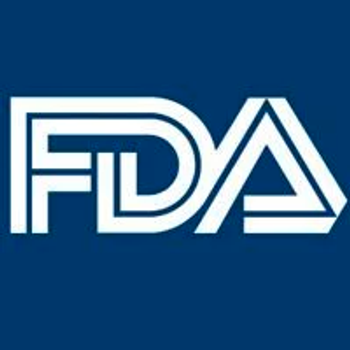
The FDA has issued a complete response letter to the biologics license application for vic-trastuzumab duocarmazine for the treatment of patients with HER2-positive unresectable, locally advanced or metastatic breast cancer.

Preoperative treatment with atezolizumab, epirubicin, trastuzumab, and pertuzumab led to improved rates of pathologic complete response and decreased residual cancer burden compared with trastuzumab, pertuzumab, and chemotherapy alone in patients with early-stage HER2-positive breast cancer, according to findings from the randomized phase 2 ATHENE trial.

Patient-reported outcomes with fam-trastuzumab deruxtecan-nxki in HER2-positive metastatic breast cancer reflected the regimen’s favorable risk-benefit profile in the phase 3 DESTINY-Breast02 trial, according to findings presented during the 2023 ESMO Breast Cancer Annual Congress.

Treatment with trastuzumab deruxtecan resulted in lower exposure-adjusted incidence rates per patient-year of treatment-emergent adverse effects compared with treatment of physician’s choice in patients with HER2-low unresectable and/or metastatic breast cancer, according to safety analysis from the phase 3 DESTINY-Breast04 trial.

Neelam Desai, MD, discusses the toxicity profile of fam-trastuzumab deruxtecan-nxki in HER2-positive breast cancer.
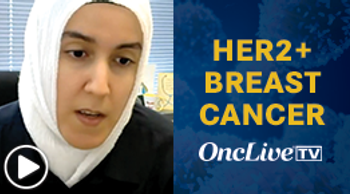
Nusayba Bagegni, MD, discusses the prevalence of interstitial lung disease in patients with HER2-positive breast cancer treated with trastuzumab deruxtecan.
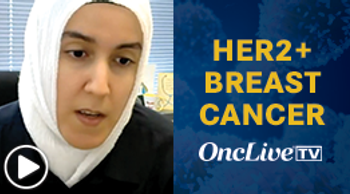
Nusayba Bagegni, MD, discusses updated efficacy and biomarker data from the phase 2 APT and ATEMPT trials in early-stage HER2-positive breast cancer.

Stephanie L. Graff, MD, discusses the evaluation of trastuzumab deruxtecan in patients with HER2-zero metastatic breast cancer in the ongoing, phase 2 DESTINY-Breast06 trial.

The Scottish Medicines Consortium has accepted fam-trastuzumab deruxtecan-nxki as a treatment option for adult patients with HER2-positive unresectable or metastatic breast cancer who have received 1 prior anti–HER2-based therapy.

Joyce A. O’Shaughnessy, MD, discusses real-world data for the use of the phase 2 HER2CLIMB trial regimen of tucatinib plus trastuzumab and capecitabine in HER2-positive breast cancer.

Cynthia X. Ma, MD, PhD, discusses updates in triple-negative breast cancer treatment, recent data on HER2-targeted agents in metastatic and early-stage HER2-positive breast cancer, and the role of CDK4/6 inhibitors and oral selective estrogen receptor degraders in hormone receptor–positive disease.

Jennifer M. Matro, MD, discusses the real-world implications and uptake of the HER2CLIMB regimen, other trials investigating tucatinib-based regimens in HER2-positive metastatic breast cancer, and how approaches differ between early-stage and metastatic hormone receptor–positive/HER2-negative breast cancer.

Mary Anne Fenton, MD, discusses findings from the phase 3 DESTINY-Breast03 trial in patients with metastatic, HER2-positive breast cancer.

Stephanie L. Graff, MD, discusses data from an exploratory analysis of patients with HER2-positive breast cancer and brain metastases enrolled to the phase 2 HER2CLIMB study, and emphasizes the need for such research efforts to move the needle forward for this population.






